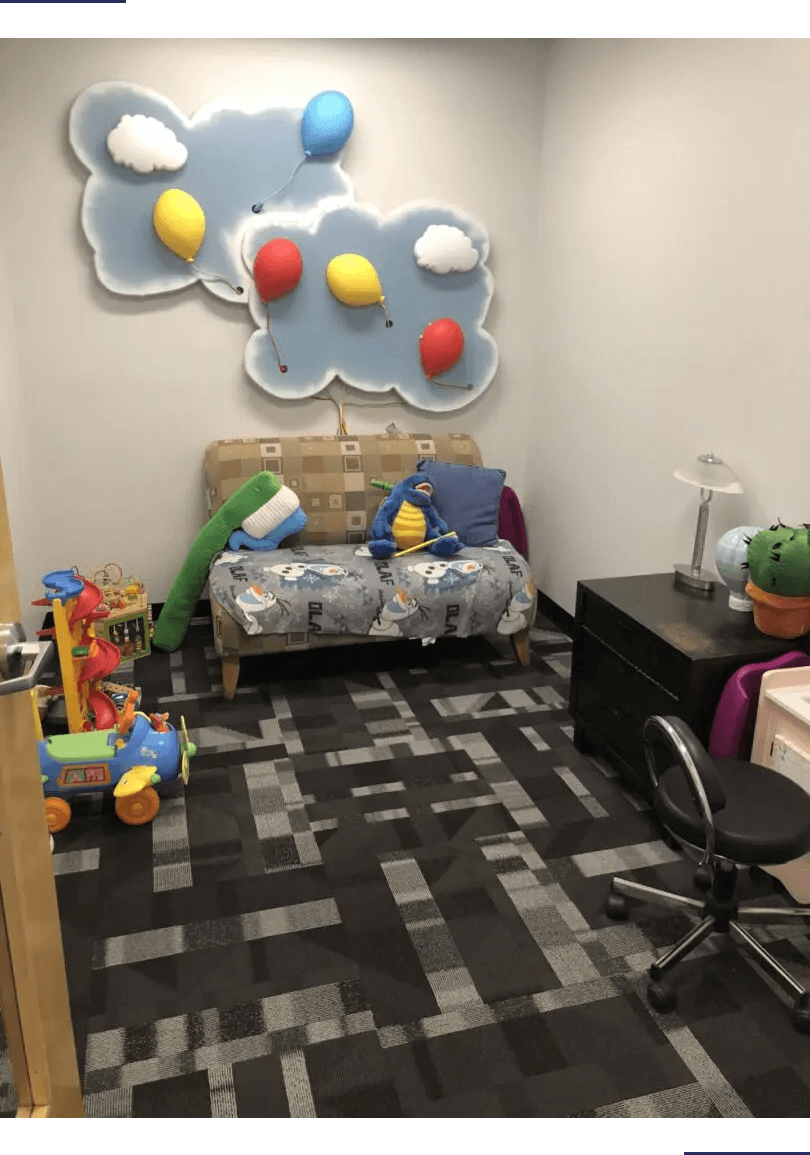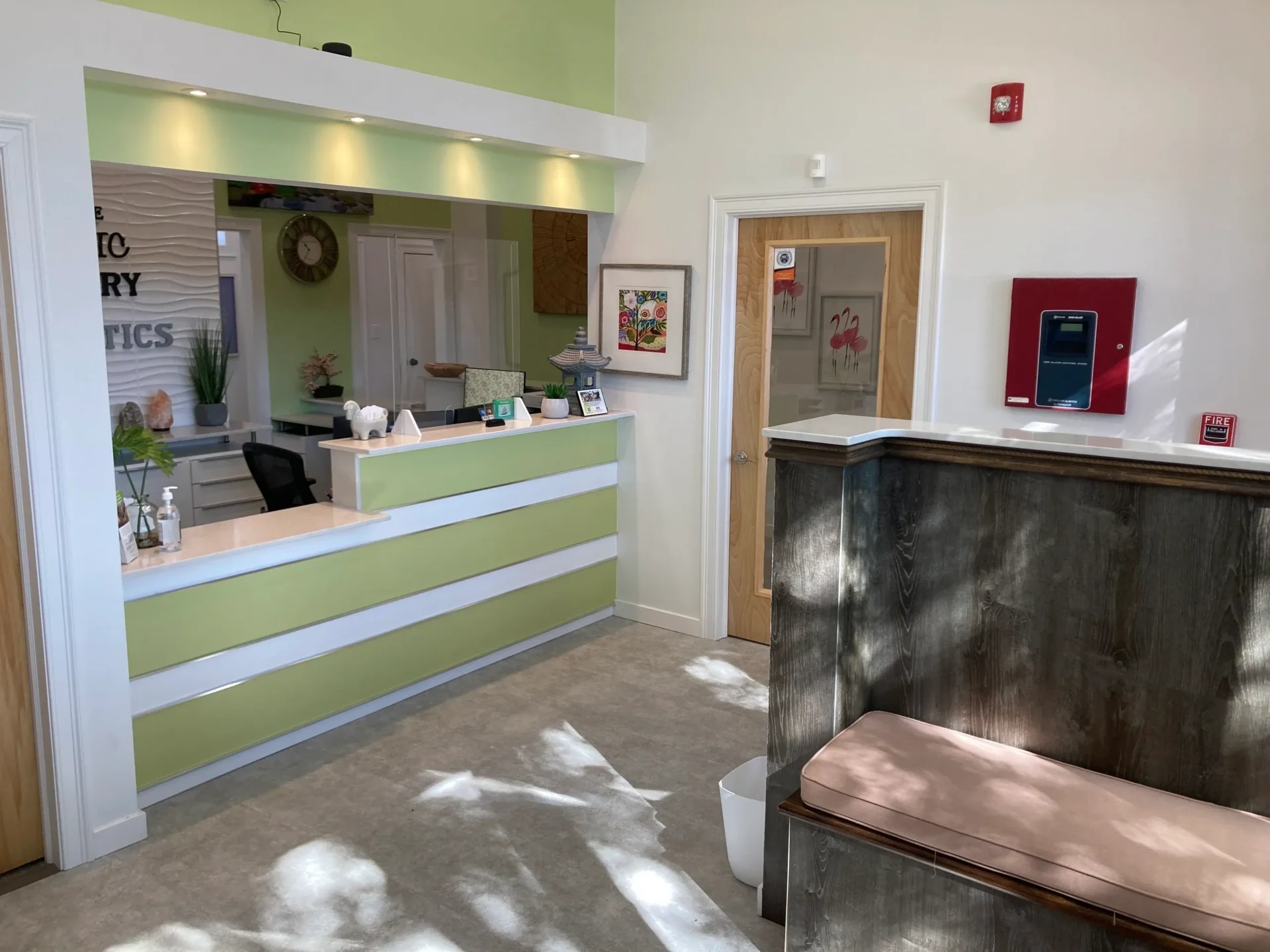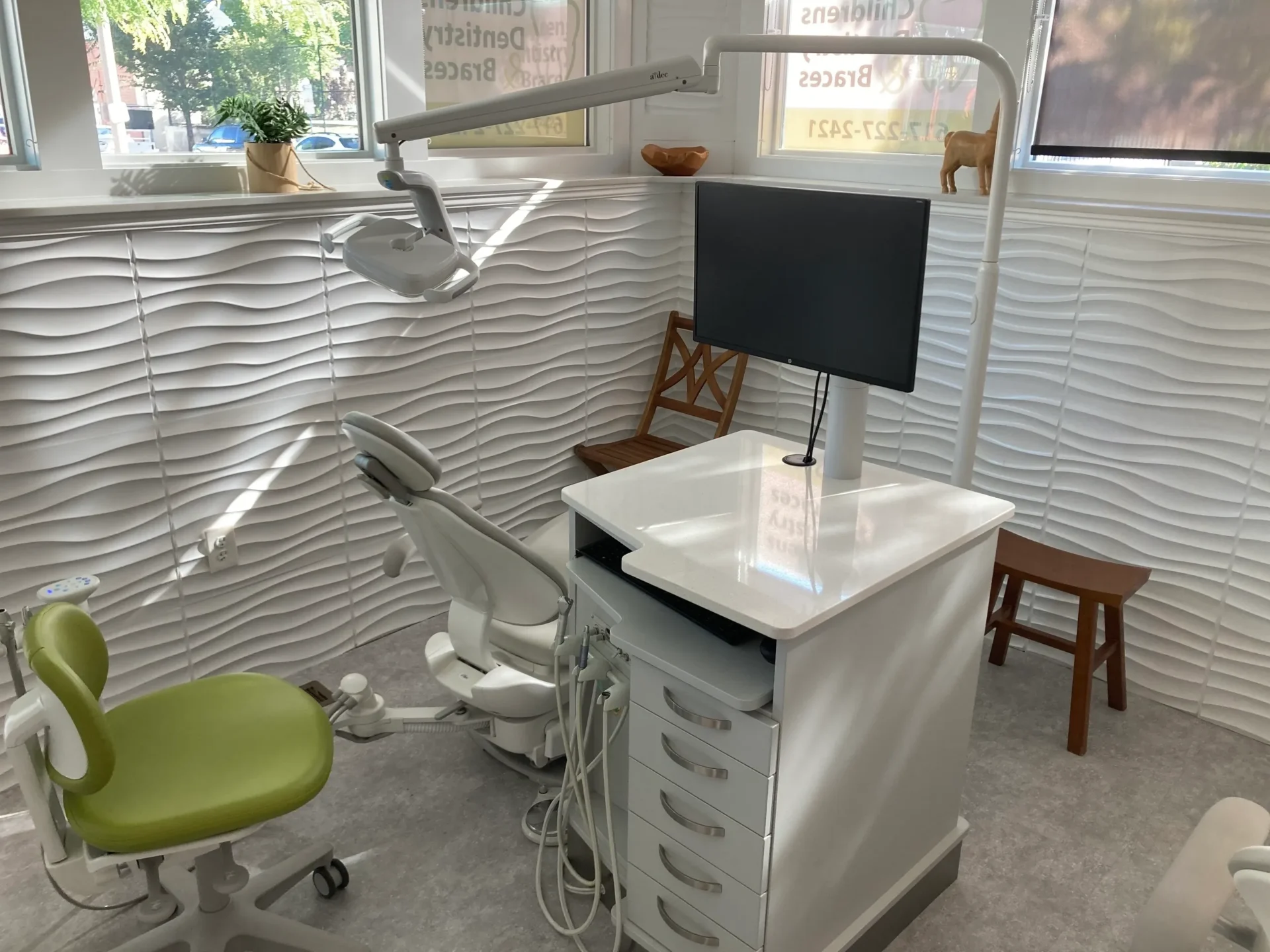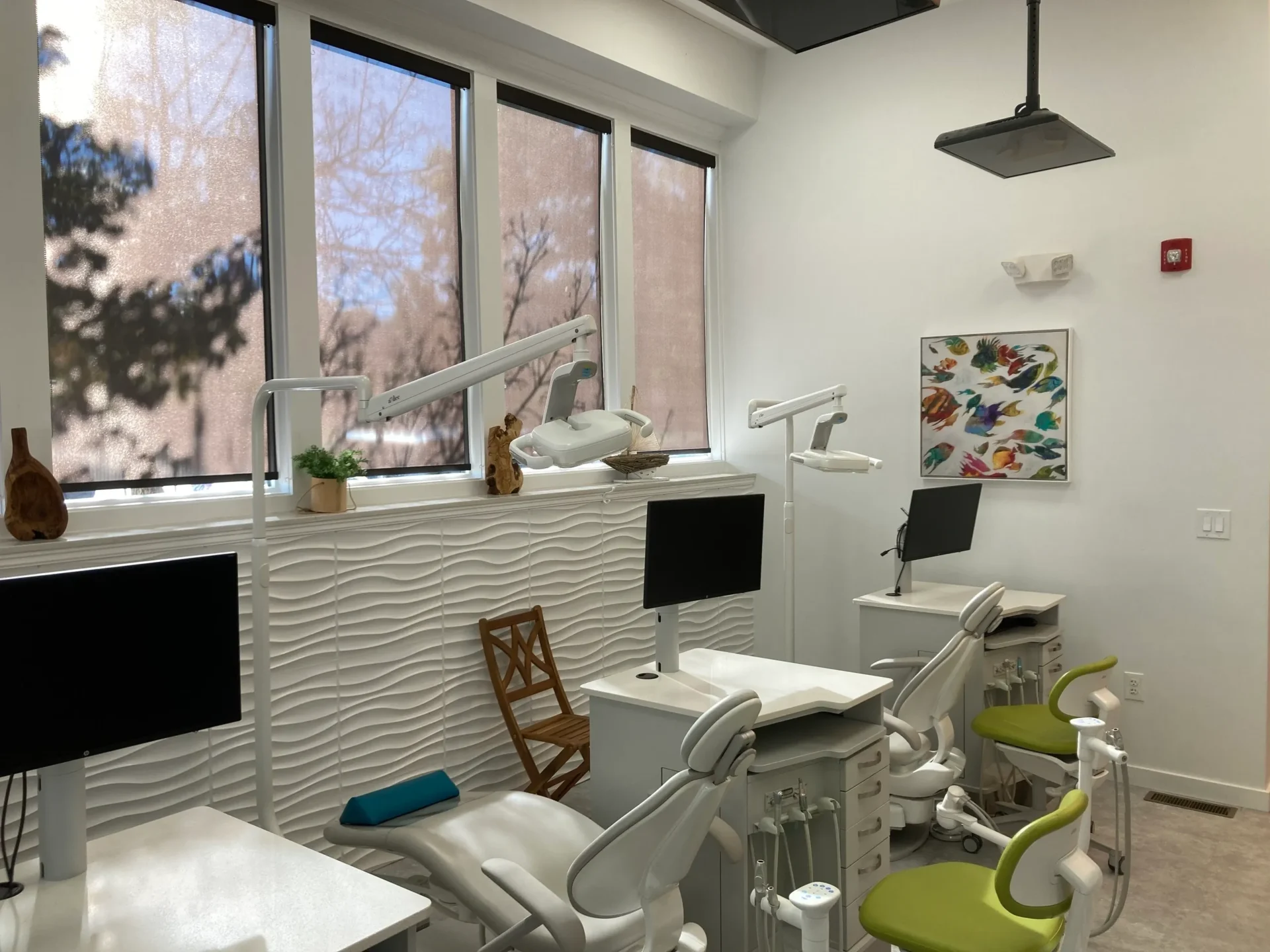Frequently Asked Questions
A pediatric dentist specializes in treating infants, children, adolescents, and children with special needs. A pediatric dentist has two or three years of specialty training after dental school. He or she is best qualified to meet the special needs of children and their oral health.
The American Academy of Pediatric Dentistry recommends that the first dental visit should take place shortly after the first tooth comes in or no later than the child's first birthday. Thereafter, a routine visit every six months can help prevent unnecessary dental treatment.
Primary teeth or "baby" teeth, are important for several reasons. They provide proper function and help maintain good nutrition for your child. Baby teeth are important in speech development and reserve the space for permanent teeth. Early loss of primary teeth from decay or trauma can affect permanent teeth. Finally, a healthy smile builds confidence.
You can rinse the area with warm salt water, floss the area to remove any impacted food, apply a cold compress on the face if it is swollen, give your child acetaminophen or ibuprofen for pain, and see your dentist as soon as possible.
Good oral hygiene at home removes bacteria and leftover food that combine and form cavities.
Dental sealants are a clear or shaded plastic protective coating placed on back teeth to prevent cavities. These teeth tend to have natural groves and pits where most cavities begin in children.
You should remain calm. First, find the tooth, hold it by the crown, and avoid handling the root. If it's dirty, rinse it gently in cool water, replace the tooth in the socket, and hold it in place with a cloth. If you cannot place the tooth back in the socket, place the tooth in a glass of milk. Call and go to see your pediatric dentist immediately.
You can reduce mouth injuries for children by having them wear mouth guards when participating in sports. Always use a car seat for young children and require everyone to wear seat belts in the car. Childproof your home to prevent falls and electrical injuries such as children biting on electrical cords. Finally, you can prevent unnecessary toothaches with regular dental preventive care.
Nitrous oxide, commonly referred to as "laughing gas," is a colorless, almost odorless gas. When it is inhaled, it has a calming effect on the patient. The relaxed state it produces in the patient allows him to respond more favorably to treatment. Nitrous oxide is very safe. The child remains fully awake and alert and can respond easily to stimuli. It is eliminated quickly from the body with normal breathing.
Conscious sedation is a minimally depressed level of consciousness that retains the patient's ability to independently and continuously maintain an airway and respond appropriately to physical stimulation or verbal command. For phobic or fearful patients who want to be totally relaxed and have little memory of their appointment, conscious sedation is often recommended.
General anesthesia is a management technique that uses medications to cause the child to become unconscious and asleep while receiving dental care. It is provided by a physician or dentist who has special training in anesthesia. Children with severe anxiety and/or inability to cooperate are candidates for general anesthesia. These children may be young or have compromised health or special needs. They usually require extensive dental treatment, and their anxiety cannot be controlled with conscious sedation techniques.




